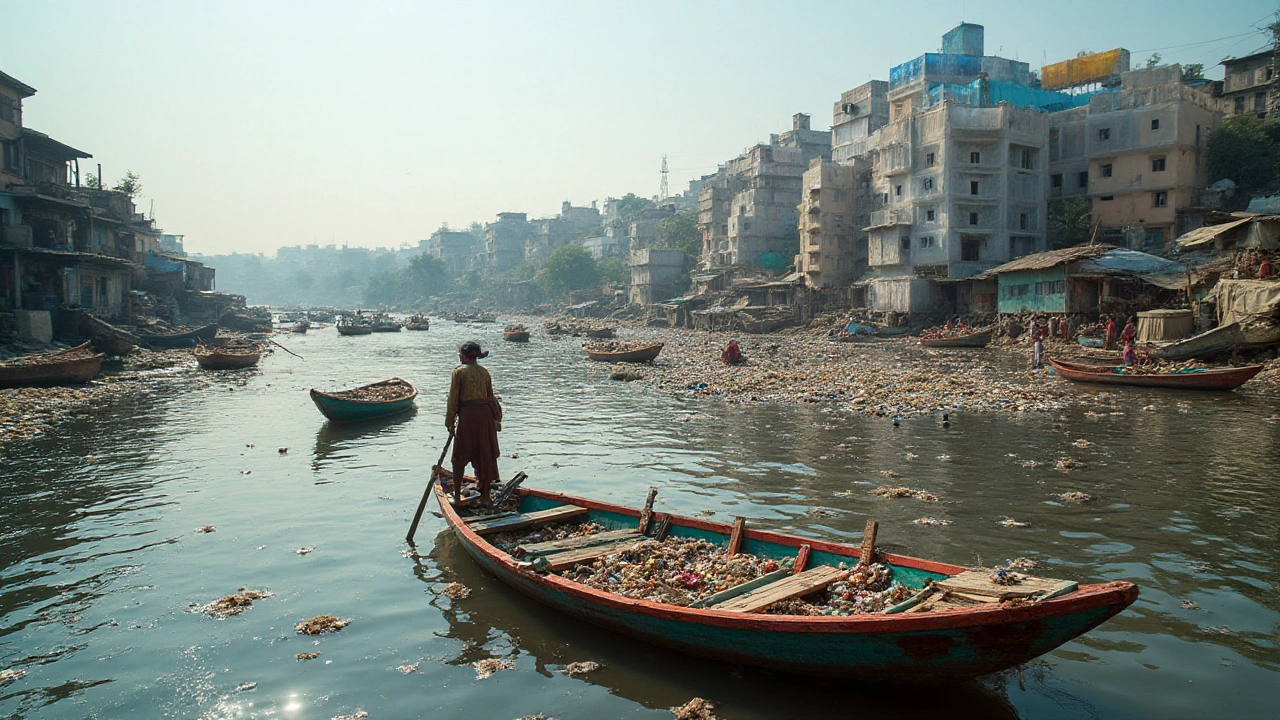Pollution Insights: What You Need to Know About Industry and Waste
Pollution is everywhere – in the air you breathe, the water you drink, and the oceans that feed the world. When factories, cars, and plastic bags all dump waste, the planet pays the price. In this guide we break down the biggest sources of pollution and show you easy steps you can take right now.
Industrial Pollution: What’s Driving the Problem?
India’s manufacturing boom has sparked economic growth, but it also adds a lot of smoke and chemicals to the sky. Power plants, steel mills, and chemical factories burn coal or use processes that release carbon dioxide, sulfur oxides, and tiny particles that harm lungs. These emissions not only worsen air quality in cities like Delhi and Mumbai, they also contribute to global warming.
One practical way to cut this down is to push for cleaner technology. Companies that install scrubbers, switch to natural gas, or adopt renewable energy see a drop in emissions and often save money on fuel. As a consumer, you can support firms that publish clear environmental reports – transparency usually means they’re trying to improve.
Workers can also make a difference on the shop floor. Simple habits like turning off idle machines, fixing leaks promptly, and using proper ventilation keep pollutants from spreading. Many factories now run regular audits to spot waste, and those audits are a good sign that the site cares about its impact.
Plastic Waste and Ocean Pollution
Plastic is a convenience that turned into a crisis. The data shows several countries dump the most plastic into the oceans, and India is a notable contributor. Single‑use bags, bottles, and packaging often end up in rivers, then drift to the sea where they harm marine life.
Start small: replace plastic bags with cloth ones, choose refillable bottles, and sort waste at home. If you run a business, look for suppliers that use biodegradable packaging or take back used containers for recycling. The government is tightening rules on plastic, but real change happens when buyers demand better options.
Another tip is to join community clean‑up drives. Picking up trash from beaches or riverbanks removes already‑lost plastic before it reaches the ocean. Even a few hours a month can make a noticeable difference in local water quality.
For anyone concerned about pollution, the goal isn’t to become a perfect zero‑waste hero overnight. It’s about making steady choices that add up. Start with one habit – switch to a reusable water bottle, ask your office for a carbon‑reduction plan, or support a brand that measures its emissions. Over time those habits become the new norm, and the environment thanks you.
Remember, pollution isn’t just a distant problem. It’s in the air you breathe on your commute, the water you pour into a glass, and the plastic you toss in a bin. By understanding where it comes from and taking simple actions, you can help create a cleaner, healthier India.

Top Plastic Waste Producers and Their Environmental Impact
Plastic waste is a burgeoning global issue, with specific manufacturing companies contributing significantly to this problem. The environmental and ecological effects of plastic production and disposal are increasingly concerning. Understanding which companies are leading in plastic waste production can help in advocating for better practices and policies. This discussion delves into the major plastic producers and their responsibilities towards reducing waste.
